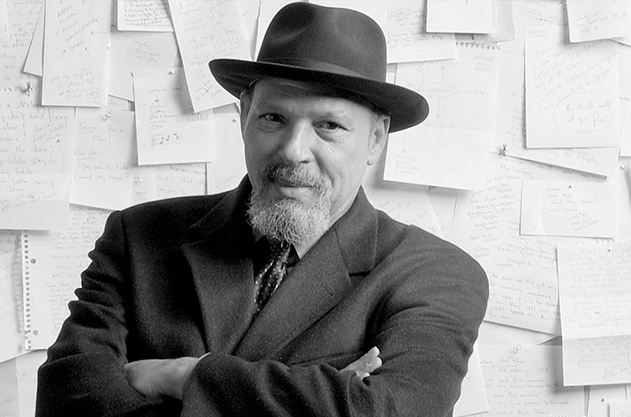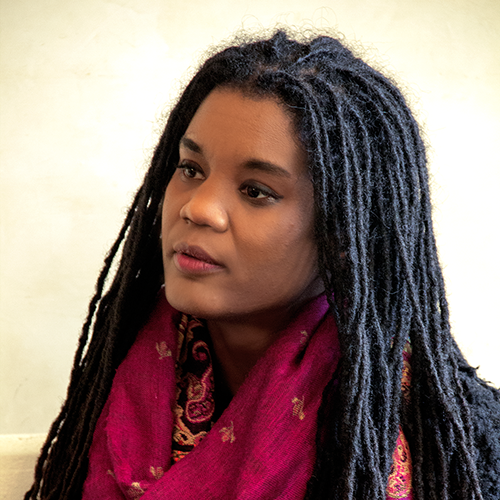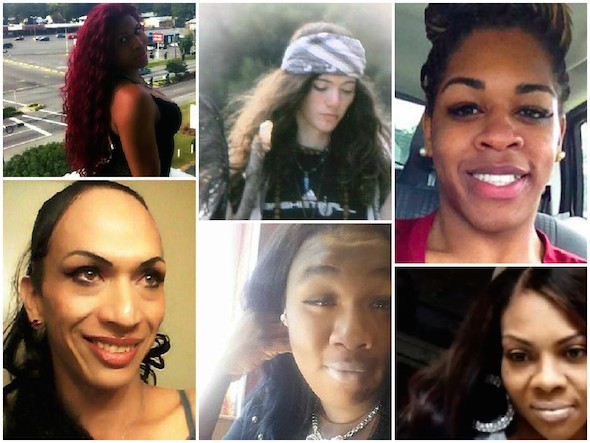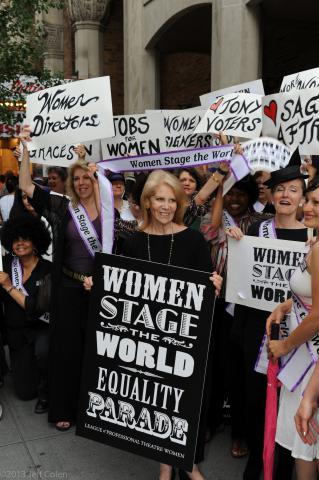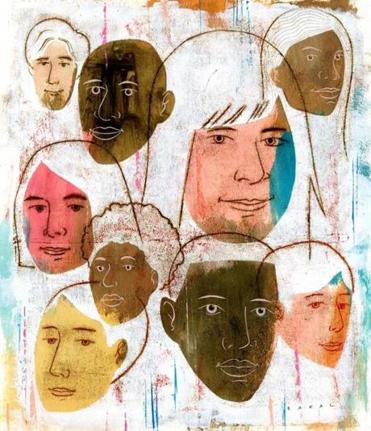On Feb 17, 2014, Peter Marks of The Washington Post hosted an event called The Summit — it was a public conversation with several of D.C.’s leading artistic directors. As Peter noted in an article for The Washington Post, “Several months ago, Molly Smith, artistic director of Arena Stage, approached me with an intriguing offer: organizing and moderating a series of discussions, with theater people and topics of my choosing, onstage before an audience at her theater.” It was the first of three planned public fora — the others are scheduled for March 24 (focusing on actors), and April 28 (playwrights and directors). The event with Artistic Directors was not livestreamed, but it was live-tweeted by several attendees, chief among them Elissa Goetschius, artistic director of Baltimore’s Strand Theater. It’s probably fair to say that no one involved expected the event to blow up twitter as it did that evening, nor to spark a renewal of the national conversation on gender parity and representation on American stages.
In an effort to capture the vast amount of conversation that evening on twitter, and to bank Elissa’s excellent live-tweet reportage, I created a Storify (a kind of twitter narrative) of the tweets using the hashtag #TheSummit, which you can find HERE.
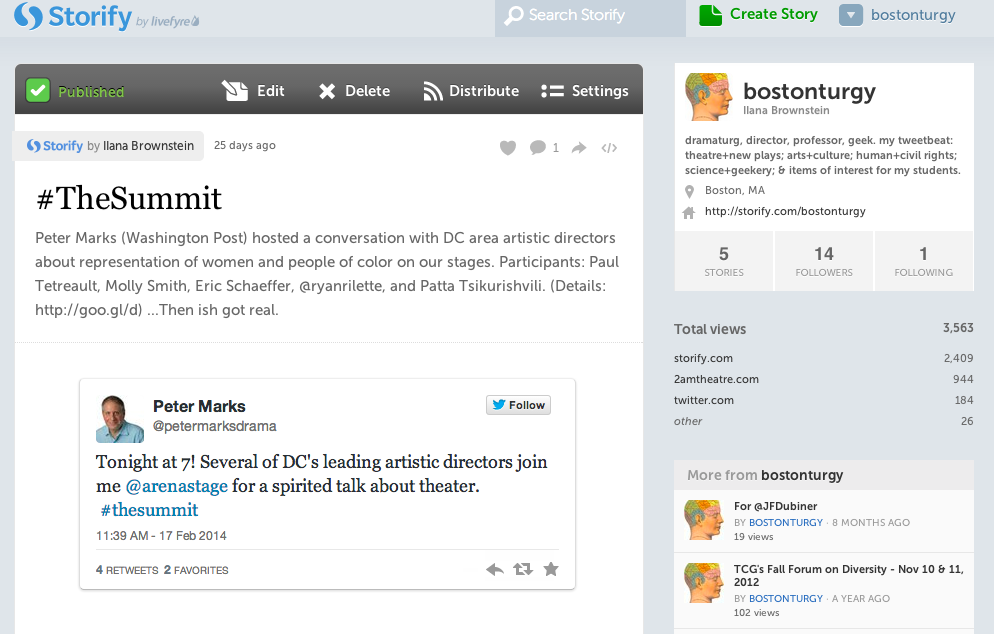
There was a tidal wave of response to #TheSummit, and I’m using this space to attempt to catalogue it for future reference. If I’ve missed an article of note, please let me know in the comments section.
• Elissa Goetschius wrote a narrative account of The Summit for 2AMT: “Climbing #TheSummit”
• DC Theatre Scene’s account, by Brett Steven Ableman
• Brett Steven Abelman continued on the subject via his personal blog: “Season Programming and Personal Agency”
• MD Theatre Guide: “Through Lines: The Summit Part 1 — The State of Washington Theatre”
• Christine Evans: “Cumulative Advantage and Women Playwrights”
• WE EXIST, an open-source list of female playwrights, initiated as a response comments at The Summit that women playwrights weren’t “in the pipeline” that runs to major stages for production.
• Holly Derr for HowlRound.com: “The Myth of the American Theatre Pipeline”
• It was already in the works when The Summit happened, but Boston playwright Patrick Gabridge’s count of the Boston area theatre season (looking at gender and ethnic diversity for playwrights and directors) was well timed for this conversation. It’s in three parts: Part 1 (large and mid-sized theatres) — Part 2 (small/fringe scene & overall numbers) — Part 3 (New England theatre).
• This one preceded The Summit by about 2 weeks, but is topically related: Ms Magazine’s “Binders Full of Women and People of Color Playwrights”
UPDATE 3/17/14: Here are some additional, pertinent articles. Thanks to everyone for the links.
• Chicago Tribune: “In Chicago, Plays by Women, Bucking the National Trend”
• Philadelphia’s genre-defying performance group Swim Pony also took on #TheSummit
• Some context for Pat Gabridge’s Boston count (linked above) — here’s a count I did for Boston’s 2012-13 Season.
• Mike Lew was prompted by #TheSummit to address how “Arts Education Won’t Save Us From Boring Inaccessible Theatre.” And in case you missed it at the time, Mike also wrote wisely on gender parity in the theatre, back in June, 2013.
• Rick Davis on HowlRound: “Plays by Women: One Theater’s Story”
And for those who follow our C1 Intersection blog, you’ll have encountered these next two articles before — they touch on #TheSummit, and deserve a 2nd mention:
• Playwright Gwydion Suilebhan asks what we might mean when we say “gender parity.” And, here’s his count of DC theatre seasons regarding racial and gender diversity.
• Patrick Gabridge took on the topic of “Creating a Diverse World: Choices, Opportunity, and Trade-Offs for Playwrights and Theaters”
• Joel Brown in The Boston Globe framed the issues of The Summit in terms of Boston theatre: “Spotlight Shines of Area Theater’s Diversity Gap”
• BOSTON THEATRE TOWN HALL MEETING ON DEFINING GENDER PARITY: SATURDAY APRIL 27, 11A, AT BOSTON PLAYWRIGHTS’ THEATRE. Rsvp at the link.
— Ilana M. Brownstein, Director of New Work at Company One & Founding Dramaturg at Playwrights’ Commons
[Cross-posted here and here.]
